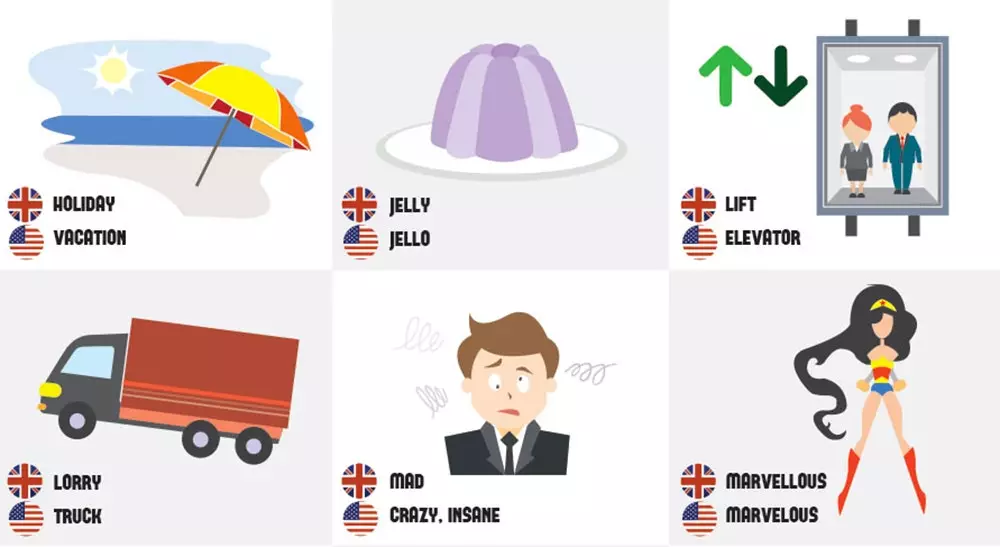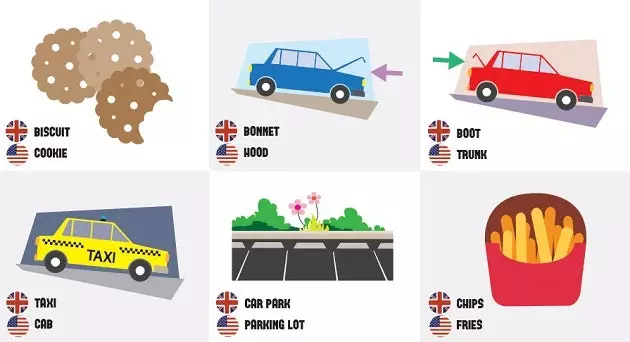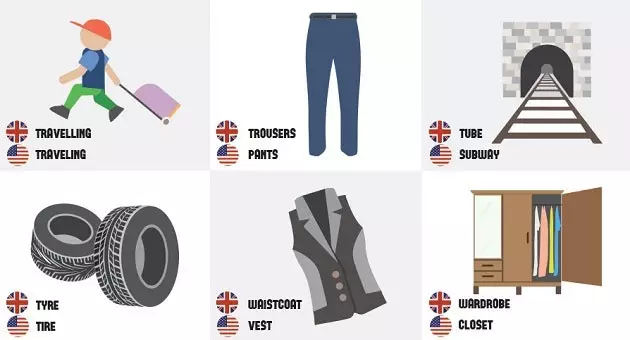
Do you speak English?
Car park or parking lot? Holiday or vacation? Tube or Subway? Public toilet or rest room? Although these words have the same meaning, dear traveler, you have to choose very well which one you use on each side of the pond because Depending on whether you are in England or the United States, it is likely that your interlocutor will not understand you if you choose wrong . Yes, the famous doubts between British and American English that may cease to be so thanks to the infographic 'British vs. American English: 63 differences'.
Behind this infographic is Jennifer Frost, a Londoner who studied in New York and now lives in Thailand, where she works as an English teacher in a small school on the outskirts of Bangkok. "I like to teach children and I think infographics are a good way to do it (...) They are a fantastic tool for transmitting knowledge, especially in such a visual and digital age like ours,” Frost tells Traveler.

No more linguistic misunderstandings!
That's why she created 'British vs. American English: 63 differences'. Frost explains that some of the words in the infographic can be used interchangeably, as most native English speakers understand both. “This is the case of taxi and cab, motorbike and motorcycle, pub and bar (…) . However, there are exceptions, such as with football and soccer. If you tell an American 'Let's go to the football match', he will think of football not soccer r (the word Americans use for soccer) . This may cause some misunderstanding.”

Holiday or vacation? Tube or Subway?...
Quiet. When he speaks of misunderstanding, he refers to small confusions that do not have to occur if you take this infographic with you or if you learn the words that you think may be more useful on your trip. Nevertheless, Frost is in favor of communication rather than memorization. “You will learn synonyms better by talking to other travelers or native English speakers. Don't be embarrassed to ask them if they understood a word when you think they haven't. If it hasn't been, ask them to explain what they understood and what word would be better to use in that case. This can also serve as a conversation starter.”
*This article was initially published on 02.18.2017 and updated

British vs. American English: 63 differences
